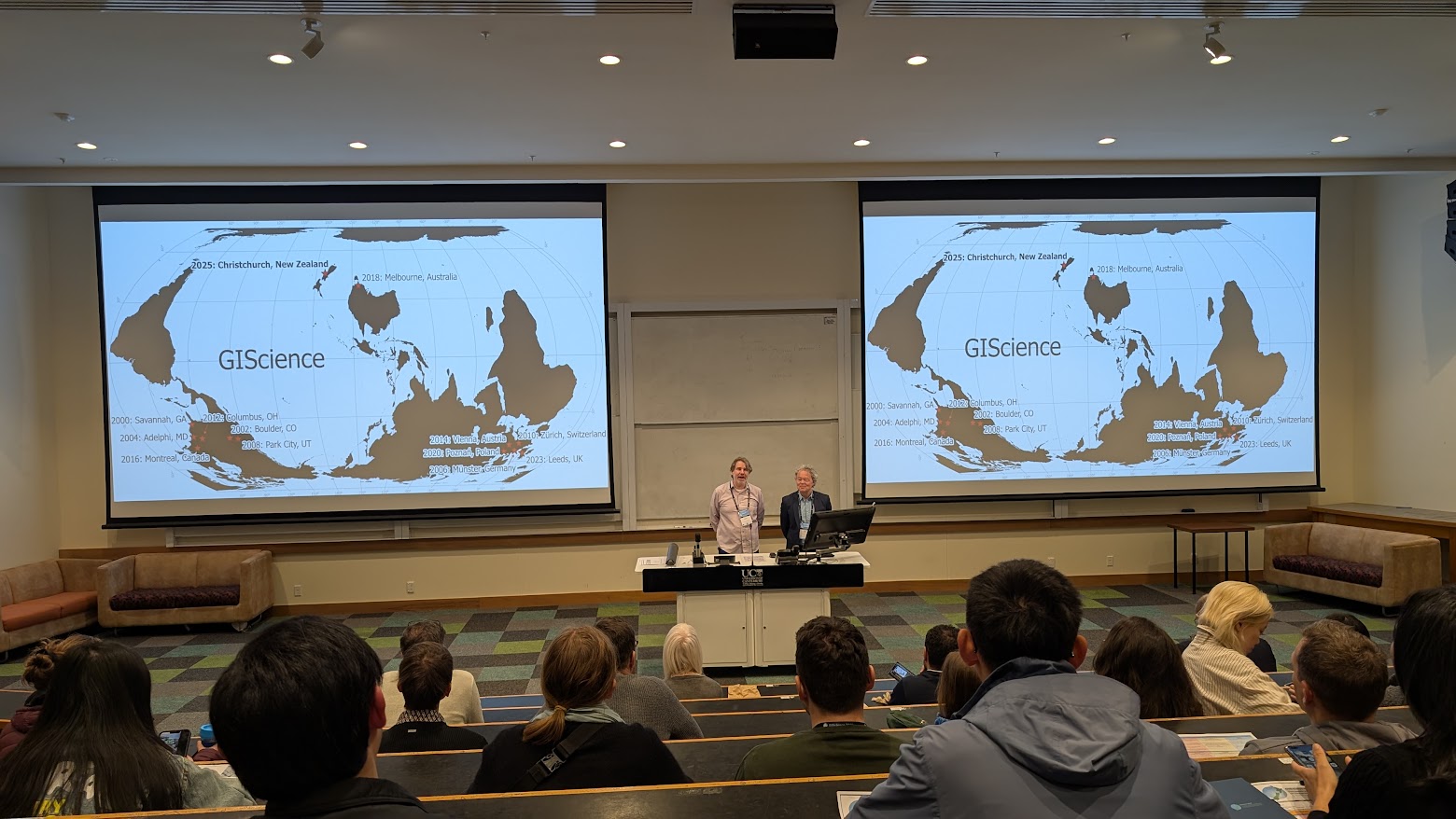The lab participated in the 13th International Conference on Geographic Information Science (GIScience 2025) last week in Christchurch, New Zealand. The event brought together researchers from across the globe to share new ideas and approaches in geographic information science, and it was a pleasure to connect, in-person, with colleagues again.
Prof. Grant McKenzie presented his full paper, MODAP: A Multi-City Open Data & Analytics Platform for Micromobility Research. This work introduces an open dataset of micromobility trips across multiple cities and a geovisual analytics platform designed to make this data more accessible for research and policy. In addition, Prof. McKenzie presented Priyanka Verma’s and Dan Qiang’s abstract Recharging the 15-Minute City: How e-micromobility is expanding access, which highlights how shared e-scooters and e-bikes can extend opportunities for people to reach key services and amenities. Both presentations fit well within the conference’s broader conversations around mobility, accessibility, and sustainable urban development.
The lab also contributed to the conference through co-organizing the Spatiotemporal Causal Analysis workshop, which invited participants to discuss methods for understanding cause and effect in geographic contexts. This workshop was a valuable space for exchanging ideas on how to approach complex questions of spatial and temporal causality in research.
Overall, GIScience 2025 was a great time. The organizers put together an excellent program, and the chance to share our team’s work while learning from others was energizing. We came away with many ideas for collaboration and a renewed appreciation for the international GIScience community.

